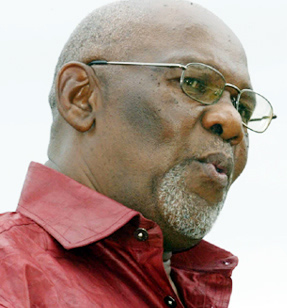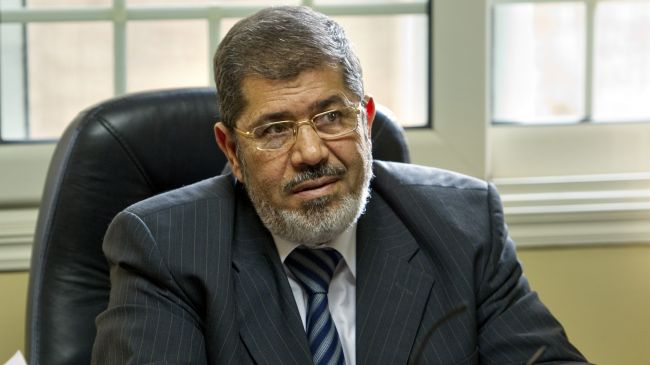Small political parties: Clowns or pillars of democracy?

Lungile Tshuma
Elections are once again around the corner. The 31 July plebiscite is expected to be tightly contested and decisive.
Besides being crucial, the harmonised elections are potentially exhilarating; as voters are going to be spoilt for choice, with up to 30 political parties participating. On this list are some parties that only surface at elections and thereafter are dormant.
The big political parties that command some following and will participate in the lections are Zanu-PF, MDC-T, MDC which form the inclusive Government.
The smaller parties that are also preparing for the poll include MDC 99, Zapu, Mavambo/Kusile/Dawn, Zanu Ndonga, Free Zimbabwe Congress, African National Party, Rebuilding Party of Zimbabwe, Voice of the People, African National Council, Progressive and Innovative Movement for People’s Prosperity, Zimbabwe Youth Alliance, Democratic Alliance-United People’s Party, United Movement for Democracy, Zimbabwe Organised Open Political Party, Multiracial Open Party Christian Democrats, Zimbabwe Development Party, Zimbabwe Progressive Party and Popular Democratic Front and Freedom Front.
With a possible 30 presidential candidates, one of the highest in any election in Sadc, one wonders how different their respective policies are. It will also be interesting to see what the ballot paper will look like and its size. For some of the parties, observers say, they do not have policies at all as they just want to add numbers.
Most of these parties claim to have a huge following from the country’s population of 13 million people of which 40 percent are adults and registered voters.
Mr Egypt Dzinemunhenzva, of the African National Party leads one of the parties that only surface at elections thereafter go under.
The man from Hwedza in Mashonaland East says he formed his party on 15 October 1990. He says it has 1, 2 million card-carrying members.
Zanu-Donga, one of the oldest parties in the country is led by Mr Gondai Vutuza. He claims the 50 year-old party has a staggering 1, 3 million card-carrying members.
Despite clear evidence to the contrary, the fly-by-night political parties want Zimbabweans to take them seriously, including wanting them to have their hard-earned tax money used in funding them, the same way more serious parties with representation in Parliament receive money from Treasury. To qualify for public funding in terms of the Political Parties (Finance) Act (Chapter 2:04), a political party has to garner at least five percent of the seats in Parliament.
The law was enacted in 2000 after it emerged that some parties were being funded by hostile Western governments. It outlaws foreign funding of political parties the same way laws elsewhere across the globe ban locals from receiving resources from foreigners to fund their political programmes.
Many of the so-called politicians who are gearing themselves up for the watershed elections are political clowns out to enrich themselves from gullible donors. Others pursue strictly personal agendas, that don’t resonate with the masses at all.
Mr Paul Siwela, of Bulawayo does not only lead one of the small parties in the country but has formed a number of parties.
It seems soon after falling out with the small coterie of friends with whom he shares his awkward political views with, he forms another party. He gets the crown of having been associated with possibly the biggest number of political parties in the country over the past 13 years or so. He has been with Zapu, Zapu-Federal Party and Mthwakazi Liberation Front. Mr Siwela recently announced his leadership of yet another organisation he says is a political party – Matabeleland Liberation Organisation.
Interviewed last week, Mr Siwela said he was unsure whether his formation would participate in the forthcoming elections.
“We are a movement fighting for the independence of Matabeleland,” he said. This is not an ethnic movement as people would think. We are focusing on the geographic landscape. At the moment 75 percent of people support the idea meant to speed up developing the region,” he said.
Zapu leader, Dr Dumiso Dabengwa said that his party will participate in the elections, fielding candidates in all the constituencies.
Said Dr Dabengwa:
“We are sorting out our structures in all the 10 provinces ahead of the elections. There people who are strategising for elections and I do not want to pre-empt what they are exactly doing at the moment.”
Zanu Ndonga president Mr Vutuza, a former school teacher and now a book-seller, said they were going to field parliamentary and council candidates in Chipinge, Bikita, Chimanimani and Chiredzi. Other party members will also be allowed to stand in constituencies of their choice outside the identified areas. He did could not say whether or not he is contesting the presidential elections.
“We are going to have a conference on 22 June and this is when we will come up with resolutions and we will also map the way forward for the party. We are not in coalition with any party.
“Zanu Ndonga has participated in the national elections for the past 33 years and those who say we are splitting votes and we are pursuing our own personal egos are mischievous.
“It is not true at all that we do not have tangible policies. We are preserving the legacy left by Ndabaningi Sithole. People fought for this country and our wealth is in the land. We therefore have to support and respect what other citizens died for,” said Mr Vutuza.
Another political party, United Movement for Democracy (UMD) was formed in December and is said to be led by Zimbabwe-born, South African citizen with business interests here, Mr Mutumwa Mawere.
The party’s national organising secretary, Mr Ashirai Mawere said they were prepared for elections which he said must be held by 31 July in accordance with the Constitutional Court ruling.
“Our party was formed in December last year and with the audit carried out in January this year we had 221 000 supporters in Harare alone,” claimed Mr Ashirai Mawere.
“The party is branch-based and out of the 1 958 wards in the country we have managed to set up 800 wards. Our branch has 300 people or more. I am happy because we managed to get the required people. In some cities we have branches with more than 300 people as is the case in Chitungwiza where have a branch with about 1 000 people,” he said.
Mr Mawere said UMD promised people employment among other benefits if voted into office.
“Many people are still joining the party. On Workers’ Day we had about 380 00 workers as part of our members and these include nurses, teachers, mine workers, journalists and accountants and about 60 000 unemployed,” he said.
Mr Mawere could not deny or confirm whether or not he is related to Mr Mutumwa Mawere.
“The issue is not about the relationship between me and Mr Mawere but it is about the party and what it seeks to achieve in the country. There are so many people with the surname Mawere but nothing has been said about them.
“Our party does not have a manifesto. We have a policy that we are pursuing and that is economic revolution. This is the reason why we are supporting what Mutumwa Mawere and Strive Masiyiwa are doing. By doing that people start to associate us with Mutumwa Mawere,” he said.
He said he supported the high number of political parties in the country, saying that was democracy at work.
“This shows that we do not have leadership crisis in the country,” he said.
Mr Mawere denied claims that the small political parties were meant to split votes.
“There is nothing like splitting votes. We are doing what the constitution says,” he said.










Comments